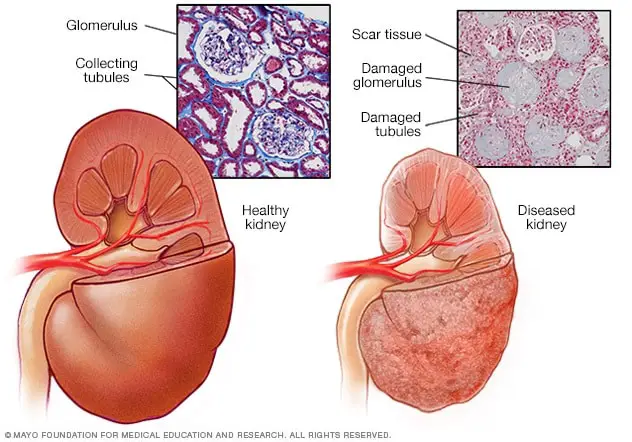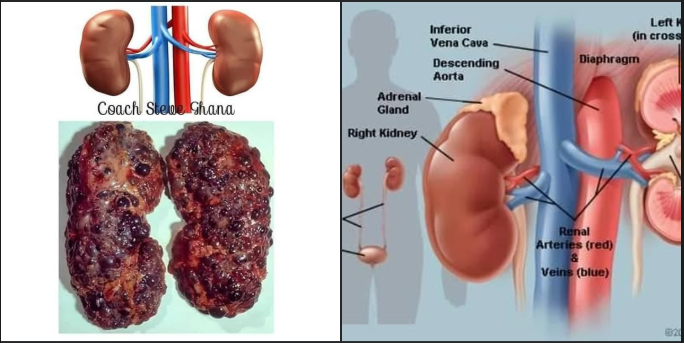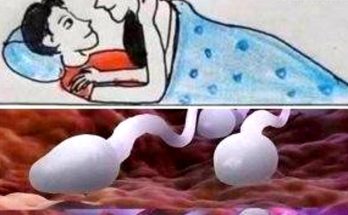Kidney Disease: Early Warning Signs and How to Protect Your Health
Kidney disease is a silent but serious condition that can significantly impact your overall health. Recognizing the early warning signs is crucial, as timely detection can help prevent further complications. If you experience any of these symptoms, consult a healthcare professional promptly to safeguard your kidney health.
Understanding the Role of the Kidneys

Your kidneys are essential organs that work tirelessly to filter waste from the blood, regulate fluid balance, and maintain electrolyte levels. These bean-shaped organs, located just below the ribcage on either side of your spine, also help control blood pressure and support red blood cell production. On average, healthy kidneys filter about 120–150 quarts of blood daily, ensuring the removal of toxins through urine.
What Is Kidney Disease?

Kidney disease occurs when the kidneys lose their ability to function properly. Common causes include high blood pressure, diabetes, infections, autoimmune disorders, and genetic predisposition. Without appropriate treatment, kidney disease can progress to kidney failure, necessitating dialysis or a transplant. Recognizing the early warning signs allows for timely intervention and improved outcomes.
10 Warning Signs of Kidney Problems
1. Changes in Urination
One of the first signs of kidney trouble is a change in urination patterns, including:
- Increased frequency, especially at night
- Decreased urine output
- Foamy or bubbly urine, which may indicate protein leakage
2. Fatigue and Weakness
Kidneys play a role in red blood cell production by releasing erythropoietin. When kidney function declines, anemia can develop, leading to fatigue, weakness, and difficulty concentrating.
3. Swelling (Edema)
Poor kidney function can cause fluid retention, leading to swelling in the:
- Legs
- Hands
- Face
- Abdomen
4. Persistent Back Pain
Pain below the ribcage or tenderness in the back could be linked to kidney infections, stones, or other kidney-related conditions.
5. Unexplained Weight Loss or Loss of Appetite
The buildup of waste in the bloodstream can cause appetite loss and unintentional weight loss, making you feel full even when you haven’t eaten much.
6. Nausea and Vomiting
Excess waste in the blood can cause nausea or vomiting, especially in the morning or after meals.
7. Difficulty Sleeping
Many individuals with kidney disease experience sleep disturbances due to:
- Muscle cramps at night
- Restless leg syndrome
- Frequent urination disrupting sleep
8. Metallic Taste in the Mouth
A persistent metallic taste or bad breath may result from uremia, a buildup of waste products in the bloodstream.
9. Muscle Cramps and Twitching
Electrolyte imbalances, such as low calcium or high phosphorus levels, can lead to muscle cramps and twitching.
10. Itchy Skin
Toxin accumulation due to impaired kidney function can cause intense and persistent itching.
How to Protect Your Kidneys

To maintain optimal kidney health and prevent disease progression, consider these key lifestyle changes:
- Stay hydrated by drinking plenty of water.
- Limit your intake of salt and processed foods.
- Manage chronic conditions like diabetes and high blood pressure.
- Avoid excessive use of painkillers and NSAIDs.
- Get regular check-ups, especially if you have a family history of kidney disease.
When to See a Doctor
If you notice any signs of kidney dysfunction, seek medical advice immediately. A healthcare provider can perform blood tests, urine tests, and imaging studies to assess kidney function. Early detection is vital to preserving kidney health and preventing irreversible damage.
Conclusion
Recognizing the warning signs of kidney disease can help you take proactive steps to protect your health. By staying informed and seeking medical attention at the first sign of trouble, you can reduce the risk of complications and maintain overall well-being. Don’t ignore the symptoms—listen to your body and take action.
Please SHARE this article with your family and friends on social media to spread awareness about kidney health.



